Uncategorized
Surviving a 16 Hour Fast While Improving Focus, Health, Energy, and Fitness
Published
By
Guests
By: Rehan Jalali, C.S.N.
One of the most frequently asked questions I get is how can I workout and eat properly while I am fasting? Most people see the blessed month of Ramadan as a time when they will surely lose strength and or lean muscle mass and some people think they can only “maintain” during this month (ironically, many women actually gain weight during Ramadan). However; this concept of diminished physical ability cannot be further from the truth. In fact, if you use some of the strategies I am about to share with you, you can make some of your best gains during this month! It’s all about maximizing nutrient uptake, maintaining proper hydration, and modifying key fat burning/muscle building hormones in your favor during this month. And of course PREPARATION—If you fail to plan, then you plan to fail! Plus, how can you truly maximize this month spiritually if your body is sick, tired, and your mind isn’t sharp?
This year the fasting will be long – to the tune of around 16 hot and humid hours a day. So you must be more vigilant about hydration and the food you eat. First of all, let’s look at what happens to your body during Ramadan. While you are fasting, obviously you become more dehydrated at rest – but actually less than if you had exercised aerobically for over an hour (so exercise causes greater dehydration for that time period versus fasting). Your main metabolic fuel source for bodily function during fasting is mainly fat, which is a good thing. So the goals during Ramadan are to maximize metabolism (even though your metabolism will slow down due to less frequent meals), preserve and enhance as much lean muscle mass as possible (which will inherently increase metabolic rate and allow you to burn more calories at rest), and maximize your workout (both cardio and weight training).
Keep supporting MuslimMatters for the sake of Allah
Alhamdulillah, we're at over 850 supporters. Help us get to 900 supporters this month. All it takes is a small gift from a reader like you to keep us going, for just $2 / month.
The Prophet (SAW) has taught us the best of deeds are those that done consistently, even if they are small. Click here to support MuslimMatters with a monthly donation of $2 per month. Set it and collect blessings from Allah (swt) for the khayr you're supporting without thinking about it.
During Ramadan, depending on your goals, I really recommend that you limit cardio to 2 days a week at the most. This is again to preserve as much lean muscle tissue as possible. There is actually research showing the health benefits of fasting. It is truly a physical purification. According to a study published in the reputable European Journal of Clinical Nutrition, the researchers concluded that “no detrimental effects on health have as yet been directly attributed to negative water balance at the levels that may be produced in Ramadan.” Other research has actually shown cardiovascular benefits of fasting during Ramadan – that is if you can avoid the IBS (no, not irritable bowel syndrome) but the dreaded Iftar Binging Syndrome! It is vital to eat moderate to small meals even after iftar.
Training Times
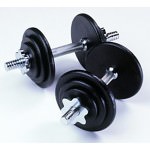
The best time to do cardio work for maximum fat loss is before suhur – yep that’s the truth. Of course, most people I know will not want to get up at around 3: 30 AM and do cardio! If you CAN pull this off then the best thing to do is get up and drink plenty of water with a cup of coffee, green tea, or oolong tea, wait 30 minutes and perform 30-45 minutes of moderate intensity cardio work like a brisk walk on a treadmill. If this is out of the question for you, then the next best time to do cardio is approximately 30-45 minutes after a “light” iftar (I will define this shortly). Short, high intensity cardio like sprinting is actually great to do during Ramadan. It takes less than 10 minutes and provides maximum benefit in terms of fat burning and lean muscle preservation! This isn’t “driving miss Daisy” cardio – its very intensive – example: sprint for 20-30 sec at full speed (like a dog is chasing you!) and walk for 1 min. Do 3-5 cycles like that and you’re good! Start slow of course and work your way up.
So now you know when to train, it’s time to learn what to eat and drink (think water, water, and more water!).
Suhur meal (morning/pre-dawn)
For suhur, it is imperative to drink plenty of water, eat a good blend of protein, carbohydrates, and essential fat – that’s right “good fats” have many fat burning and muscle building properties and their importance is even greater during Ramadan. Some good “suhur” foods include:
Egg whites (1 yolk)
Chicken breast
Oatmeal (multi-grain or steel cut)
Cream of wheat
Protein shake
Cinnamon
Bananas
Raw, Dark Honey
Raisins or dates
Fibrous vegetables – this will help increase the feeling of fullness as well.
All natural peanut butter
Flax seed and Fish oil – a great and tasty brand is Omega Swirl from Barleans – there’s a version for women as well. (www.barleans.com)
Olive oil – preferably extra virgin (which means it’s cold processed and the essential fatty acids are preserved)
Plenty of water
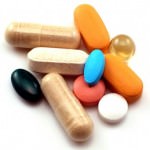
It is very important to watch your sodium intake at this time as high sodium can cause greater dehydration plus increase thirst during the day—not good for fasters. Avoid high sodium foods like soups, sauces, condiments, gravies, high sodium bread products, and canned meats. Of course eating fried foods and heavy oil items can cause heartburn and problems for you all day so it is best to avoid those if possible!
You should also eat some quality protein at iftar time as well. I recommend three dates and one scoop of a protein powder; for women, try Syngex and Zero Carb from VPX, Low Carb protein from MRM, and Super Food by Endless Youth and Life; for men, try Protein Rush from VPX Sports, Zero Carb or Syngex by VPX Sports, or also Super Food by Endless Youth and Life. Of course, drink plenty of water – in fact, keep a water bottle with you at all times after sunset! Then 1- 1.5 hours later have a food meal (or follow the schedule above for cardio).
Then during taraweeh, depending if you pray 8 or 20 rakahs, have a protein bar (like Power Crunch or Think Thin for both genders, men should also consider Zero Impact bar from VPX ) or a ready to drink protein shake in the middle (not while you are praying of course!), or have another small protein and complex carbohydrate meal after the 8 rakahs – drink plenty of water if you have a protein bar.
Then go train about 30-45 minutes after eating the bar. For women, you can actually do 20 minutes of cardio and 20 minutes of weight training at this time. And for men, you can take a BCAA (branched chain amino acid) product like BCAA-G from MRM before, during, and right after the workout to preserve lean muscle. After the workout, also have another nutrition shake (as mentioned a few lines ago) with plenty of water. Eating small meals at night can trick your body into speeding up metabolic rate (not to mention increase nutrient absorption and stabilize insulin and blood sugar levels). Your body loves homeostasis and wants to maintain a certain balance – you literally have to shock it constantly to lose fat and gain muscle over the long run! There is so much wisdom in “eat and drink but not to excess” and we should try and follow that especially during Ramadan.
SAMPLE Ramadan MEAL PLAN for fat loss and muscle gain
(*This plan is for a 170 lb MALE, please adjust amounts for bodyweight)
Suhur:
Eat 6-8 egg whites (one yolk)
One bowl of plain oatmeal w/ cinnamon, raisins and a banana
1 teaspoon all-natural peanut butter or olive oil or flax seed oil (1 tablespoon Barleans Omega Swirl)
Plenty of water (16-24 oz.)
Opti-pack by Super Nutrition (one pack) – multi-vitamin/mineral
SAMPLE Ramadan MEAL PLAN for fat loss and muscle gain
(*This plan is for a 130 lb FEMALE, please adjust amounts for bodyweight)
Suhur:
Eat 3-4 egg whites (one yolk)
½ cup of plain oatmeal w/ cinnamon, raisins and a small banana
1 teaspoon all-natural peanut butter, almond butter or olive oil or flax seed oil (1 tablespoon Barleans Omega Swirl)
Plenty of water (16-24 oz.)
Womens blend-2 pills –multi-vitamin/mineral
Iftar (the evening opening of the fast):
1) Recommendations for men:
Three Dates and a Nutrition Shake (Protein Rush from VPX Sports, Zero Carb or Syngex by VPX Sports, or Super Food by Endless Youth and Life)
Plenty of water
2) Recommendations for women:
Three Dates and a Nutrition Shake-1 scoop w/12 oz water (Syngex and Zero Carb from VPX, Low Carb protein from MRM, and Super Food by Endless Youth and Life-1 SCOOP of 1 of these w/ 8 oz water)
Plenty of water
For cardio workouts: do cardio 45 minutes after this meal for 30-45 minutes at a moderate pace or do a sprint workout if you have less time and then have the next meal before taraweh. (Have a cup of green tea, Oolong tea, or coffee with Iftar on cardio days).
For weight training days: eat another food meal before taraweeh like chicken breast (or baked salmon), brown rice and some veggies OR baked fish (Salmon, Tuna, Orange Roughy, or Mahi mahi), sweet potato, and some steamed vegetables.
Drink plenty of water during taraweeh–go to the gym after taraweh. (If you pray 20 rakahs, then have a protein bar in the middle of taraweh). Both men and women should drink plenty of water during the workout; however men should additionally consider drinking Accelerade or Powerade™ or another sports drink during the workout.
After the workout, have another Nutrition Shake–lots of water of course. Then sleep 45 minutes later or stay up all night eating and working like I do!
Following these simple workout and nutrition tips can really help you make great gains during this blessed month. May God help give us patience and strength in this month and throughout the year and make us strong mentally, internally, spiritually, and physically!
Top 5 healthy foods (especially important during Ramadan)
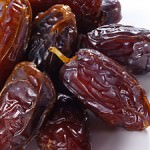
2) Raw, Unfiltered Honey – It contains many phytochemicals and flavanoids that can enhance health. Honey is very good for increasing energy. It is an excellent source of antioxidants. In fact, ORAC tests show it has the highest level of antioxidants of virtually any natural food on earth! It even has anti-bacterial effects. Take 1-2 tablespoons daily.
3) Fish – Eating fish regularly can have positive effects on health. The fish oils EPA and DHA have been shown to improve brain function, enhance cardiovascular health, and reduce inflammation among other things. Some of the best fish are cold water wild salmon, orange roughy, deep sea Cod, sea bass, Ahi Tuna, Mahi mahi, and tilapia.
4) Figs – They contain key mineral such as calcium, iron, magnesium, and potassium. They are also a great source of fiber and can support healthy blood sugar levels. Figs are an alkaline food which means they help balance the Ph of the body making it less acidic.
5) Olive Oil – Contains omega 9 or oleic fatty acids. It has been shown to increase the good cholesterol (HDL) while lowering bad cholesterol (LDL). It also seems to have some antioxidant effects. Look for extra virgin olive oil (cold-pressed). Cooking with it can lower some of its benefits. Add it to food after it is cooked!
*The content of this article is for information purposes only. Please consult a physician before starting any nutrition, training, or supplementation program.
Keep supporting MuslimMatters for the sake of Allah
Alhamdulillah, we're at over 850 supporters. Help us get to 900 supporters this month. All it takes is a small gift from a reader like you to keep us going, for just $2 / month.
The Prophet (SAW) has taught us the best of deeds are those that done consistently, even if they are small. Click here to support MuslimMatters with a monthly donation of $2 per month. Set it and collect blessings from Allah (swt) for the khayr you're supporting without thinking about it.

When Love Hurts: What You Need to Know About Toxic Relationships | Night 11 with the Qur’an

I Can’t Stop Thinking About Someone | Night 10 with the Qur’an

Fifteen Years in the Shadows: The Strategic Brilliance of the Hijrah to Abyssinia

Ramadan As A Sanctuary For The Lonely Heart

Cultivating A Lifelong Habit Of Dua In Children

30 Nights with the Qur’an: A Ramadan Series for Muslim Teens

[Podcast] Guardians of the Tradition: Muslim Women & Islamic Education | Anse Tamara Gray

Who Am I Really? What Surat Al-‘Asr Teaches Muslim Teens About Identity | Night 1 with the Qur’an

Where Does Your Dollar Go? – How We Can Avoid Another Beydoun Controversy

Ramadan In The Quiet Moments: The Spiritual Power Of What We Don’t Do

I Can’t Stop Thinking About Someone | Night 10 with the Qur’an

When to Walk Away from Toxic Friends | Night 9 with the Qur’an

What Islam Actually Says About NonMuslim Friends | Night 8 with the Qur’an

Week 1 in Review: Is Your Teen Actually Changing? | Night 7 with the Qur’an

Why Your Teen Wants to Change Their Muslim Name | Night 6 with the Qur’an
MuslimMatters NewsLetter in Your Inbox
Sign up below to get started
Trending
-
#Islam2 weeks ago
30 Nights with the Qur’an: A Ramadan Series for Muslim Teens
-
#Current Affairs1 month ago
[Podcast] Should Muslims Ally with Conservatives or Progressives? | Imam Dawud Walid
-
#Life1 month ago
[Podcast] The Parts of Being an Imam They Don’t Warn You About | Sh Mohammad Elshinawy
-
#Islam1 month ago
How to Make this Ramadan Epic | Shaykh Muhammad Alshareef
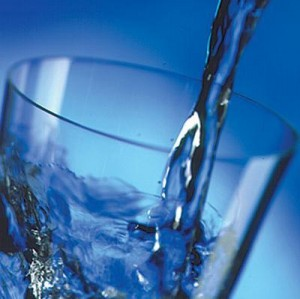
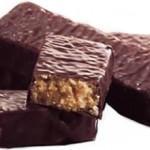











Fulan
August 19, 2011 at 10:05 AM
Subhanallah,
I am doing Zero exercise in Ramadan and can barely find the time to catch up on my ‘Ibada goals (Reading Quraan, Tafseer… etc.) between work, sleep and taraweeh. May Allah bless those who can fit in workouts in the short nights that we have. As for me, it is out of the question… impractical. However, Alhamdulillah, it takes me very little time to regain muscle mass once I begin working out. And that’s what I’ll do inshaallah.
Yasir
August 19, 2011 at 11:38 AM
Ramadhan is a month of Ibadah (Worship), not a month for exercising and making muscles. You should concentrate more on Ibadah.
In fact if you lose some muscles for the sake of Allah (swt) you will greatly be rewarded. After all its no big deal to lose some muscles for ALLAH, because it is Allah who has given us the health to work out and build muscles in the first place.
Pingback: Question Working Out While Fasting? - Page 5
Leo
August 19, 2011 at 12:48 PM
For the past couple of years I have been working out an hour and a half before iftar and been getting good results.
Outside of ramadhan I usually do krav maga on one day, full body weights workout two days and intense cardio three days per week. During ramadhan I have been alternating between light cardio and weights (but not to exhaustion). Last year I had amazing results. It stripped the body of fat (my bodyfat percentage must have been in the single digits), I maintained strength and stamina. After ramadhan I had an effortless transition to intense training and felt good about it.
This year I have only lost a few kgs but I put that mostly down to water weight. I’m not fat but would like to cut some more. How do reckon I should work out during the day? Working out at night is out of the question for me especially now we are into the last 10 nights. My nights are for spiritual training :)
Yasmin
August 19, 2011 at 1:10 PM
Jazakallah Khair! This is just the type of article I was looking for!
Samira
August 19, 2011 at 1:57 PM
Salaam
This is an amazing article and covers the whole topic of fasting and work outs without leaving anything out. Its very informative and easy to follow. Am sure many people will benefit from it. I had a great time reading it. Thank you for sharing. God bless.
Fozia
August 19, 2011 at 11:41 PM
This was a very informative atricle. Thank You!
Umm Sulaim
August 20, 2011 at 6:03 PM
One of the personal benefits of Ramadhan is lose of weight, probably. I considered doing exercise but could not risk it:
1) My meal intake is barely enough to keep up my strength.
2) Having a second meal is unthinkable, except for the occasional light snack.
3) My metabolism is high-rate; the sensible thing is to preserve my sugar level.
The tips are great and I shall try to implement some AFTER Ramadhan.
Looking good and feeling good,
Umm Sulaim